
Kód: 04938225
Last "Darky"
Autor Louis Chude-Sokei
The Last "Darky" establishes the late-nineteenth and early-twentieth-century comedian Bert Williams as central to the development of a global black modernism centred in Harlem's Renaissance. Before integrating Broadway in 1910 via ... celý popis
- Jazyk:
 Angličtina
Angličtina - Vazba: Pevná
- Počet stran: 288
Nakladatelství: Duke University Press, 2006
- Více informací o knize

3213 Kč
Dostupnost:
50 % šance Máme informaci, že by titul mohl být dostupný. Na základě vaší objednávky se ho pokusíme do 6 týdnů zajistit.
Máme informaci, že by titul mohl být dostupný. Na základě vaší objednávky se ho pokusíme do 6 týdnů zajistit.Prohledáme celý svět
Mohlo by se vám také líbit
Darujte tuto knihu ještě dnes
- Objednejte knihu a zvolte Zaslat jako dárek.
- Obratem obdržíte darovací poukaz na knihu, který můžete ihned předat obdarovanému.
- Knihu zašleme na adresu obdarovaného, o nic se nestaráte.
Informovat o naskladnění knihy
Zadejte do formuláře e-mailovou adresu a jakmile knihu naskladníme, zašleme vám o tom zprávu. Pohlídáme vše za vás.
Více informací o knize Last "Darky"
Nákupem získáte 321 bodů
 Anotace knihy
Anotace knihy
The Last "Darky" establishes the late-nineteenth and early-twentieth-century comedian Bert Williams as central to the development of a global black modernism centred in Harlem's Renaissance. Before integrating Broadway in 1910 via a controversial stint with the Ziegfeld Follies, Williams was already an international icon. Yet his name has faded into near obscurity, his extraordinary accomplishments forgotten largely because he performed in blackface. Louis Chude-Sokei contends that Williams's blackface was not a display of internalized racism nor a submission to the expectations of the moment. It was an appropriation and exploration of the contradictory and potentially liberating power of racial stereotypes. Crucially, Chude-Sokei argues that Williams's minstrelsy negotiated the place of black immigrants in the cultural hotbed of New York City and was replicated throughout the African Diaspora, from the Caribbean to Africa itself. Williams was born in the Bahamas. When performing the "darky," he was actually masquerading as an African American. This black-on-black minstrelsy thus challenged emergent racial constructions equating "black" with African American and marginalizing the many diasporic blacks in New York. It also dramatized the practice of passing for African American common among non-American blacks in an African American dominated Harlem. Exploring the thought of figures including Booker T. Washington, W. E. B. Du Bois, Marcus Garvey, and Claude McKay, Chude-Sokei situates black-on-black minstrelsy at the center of burgeoning modernist discourses of assimilation, separatism, race-militancy, carnival, and internationalism. While these discourses were engaged with the question of representing the "Negro" in the context of white racism, through black-on-black minstrelsy, they were also deployed against the growing international dominance of African American culture and politics in the twentieth century. Louis Chude-Sokei is Associate Professor of Literature at the University of California, Santa Cruz.
 Parametry knihy
Parametry knihy
Zařazení knihy Knihy v angličtině The arts Film, TV & radio Films, cinema
3213 Kč
- Plný název: Last "Darky"
- Podnázev: Bert Williams, Black-on-Black Minstrelsy, and the African Diaspora
- Autor: Louis Chude-Sokei
- Jazyk:
 Angličtina
Angličtina - Vazba: Pevná
- Počet stran: 288
- EAN: 9780822336051
- ISBN: 0822336057
- ID: 04938225
- Nakladatelství: Duke University Press
- Hmotnost: 553 g
- Rozměry: 243 × 161 × 23 mm
- Datum vydání: 16. January 2006
Oblíbené z jiného soudku
-

Mean Girls: The Burn Book Hardcover Ruled Journal
440 Kč -
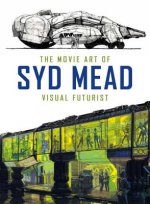
Movie Art of Syd Mead: Visual Futurist
894 Kč -

Alien: The Archive - The Ultimate Guide to the Classic Movies
883 Kč -

Alien: The Blueprints
767 Kč -

Tobin's Spirit Guide
550 Kč -

Fantastic Mr. Fox
726 Kč -

Advanced Techniques for the Modern Drummer - Jim Chapin
606 Kč -
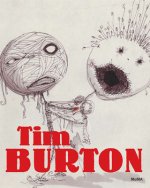
Tim Burton
432 Kč -

Stranger Things: The Ultimate Pop-Up Book
1717 Kč -
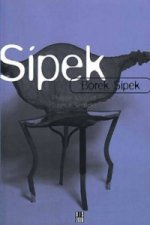
Borek Sipek
613 Kč -

Wes Anderson Collection: Isle of Dogs
673 Kč -

Pure Filth
2271 Kč -

The Animator's Survival Kit
943 Kč -

The Art and Soul of Dune
1265 Kč -

100 All-Time Favorite Movies of the 20th Century
480 Kč -

Animator's Survival Kit
1007 Kč -

The Art of Princess Mononoke
705 Kč -

The Illusion of Life : Disney Animation
1350 Kč -

Ghostbusters: Proton Pack and Wand
277 Kč -

The Art of Tangled
815 Kč -

Star Wars - the Jedi Path
433 Kč -

Art of How to Train Your Dragon 2
903 Kč -

Alien Covenant: David's Drawings
874 Kč -
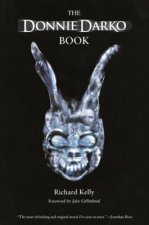
Donnie Darko Book
400 Kč -

The Celestine Prophecy
288 Kč -

The Grand Budapest Hotel
335 Kč -

Filmmaker's Handbook, The (fifth Edition)
817 Kč -

Lighting for Cinematography
815 Kč -

Character Animation Crash Course!
881 Kč -
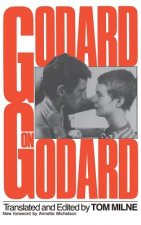
Godard On Godard
449 Kč -
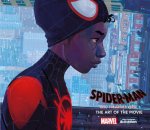
Spiderman Into the Spider-Verse
894 Kč -

Starting Point: 1979-1996
403 Kč -

Art of Mad Max: Fury Road
633 Kč -

Jurassic Park
1138 Kč -

Star Trek: Light-Up Starship Enterprise
292 Kč -

Of Walking In Ice
233 Kč -

Interstellar
508 Kč -

Walt Disney
411 Kč -

Making of Alien
1132 Kč -

Making of Aliens
1106 Kč -
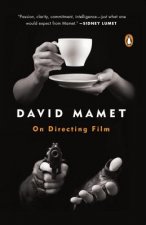
On Directing Film
371 Kč -

Vision
676 Kč -
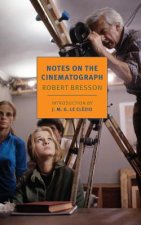
Notes On The Cinematograph
298 Kč -

Art of Inside Out
723 Kč -

Sound Effects Bible
549 Kč -

Jurassic World: The Ultimate Visual History
1265 Kč -

Jedi Vs. Sith
656 Kč -

Film in Five Seconds
383 Kč -

Timothee Chalamet A Beautiful Boy
367 Kč
Osobní odběr Praha, Brno a 12903 dalších
Copyright ©2008-24 nejlevnejsi-knihy.cz Všechna práva vyhrazenaSoukromíCookies



 Vrácení do měsíce
Vrácení do měsíce 571 999 099 (8-15.30h)
571 999 099 (8-15.30h)